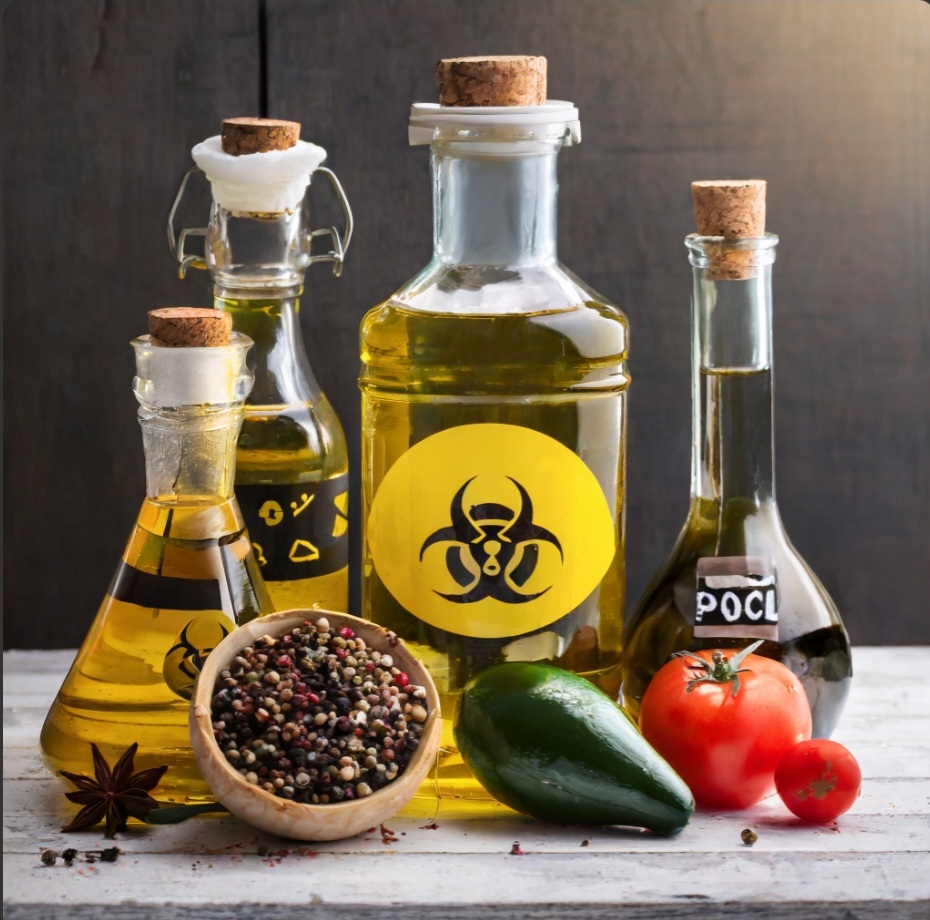Your cart is currently empty!
The Dark Side of Canola and Soybean Oils

The Dark Side of Canola and Soybean Oils
In the bustling world of cooking oils, two contenders have long held the spotlight in countries across the world: canola oil and soybean oil. These seemingly innocent kitchen staples, however, harbor secrets that might make you reconsider reaching for that bottle on the shelf and reading the ingredients labels more carefully when shopping . Let’s dive into these oils and discover why a switch to healthier alternatives might be in order.

Canola Oil: The Deceptive Darling
Canola oil, often touted for its low saturated fat content, has an unsettling side. Extracted from rapeseed, it undergoes a refining process that raises eyebrows among health enthusiasts. The refining process involves high heat, bleaching, and deodorizing, which strips the oil of its natural goodness and leaves behind a shadow of its original self.
Fun Fact:
Did you know? Canola oil was initially derived from rapeseed specifically bred to have low uric acid. However, concerns linger about residual toxins and the impact of processing on the oil’s nutritional profile. Canola was originally a trademark name of the Rapeseed Association of Canada. The name is a combination of “can” from Canada and “ola” from “oil, low acid”. This man-made oil can be compared to motor oil, which will not assimilate in the human body and should be avoided at all costs.
Soybean Oil: The Trojan Horse in Your Pantry
Soybean oil, a common kitchen companion, can be more harmful than it seems. While it’s true that soybeans themselves are rich in “protein”, the oil extracted from them often undergoes a process involving chemicals like hexane. These chemicals, although removed during processing, may leave traces that raise questions about the oil’s safety.
Fun fact: Soybean oil is a prevalent ingredient in many processed foods, sneaking into your diet under various aliases like vegetable oil or hydrogenated oil. These oils coat the lining of the digestive system leading to challenged digestion and toxicity.

Healthier Alternatives: A Culinary Renaissance
Fear not, for there’s a world of healthier alternatives waiting to grace your kitchen with their wholesome presence. Avocado oil, with its high smoke point and heart-healthy monounsaturated fats, takes center stage for cooking. Sesame oil, revered for its rich flavor, adds an aromatic touch to stir-fries and Asian-inspired dishes.
But that’s not all. For raw applications like salad dressings and cold sauces, olive oil and coconut oil emerge as champions. Olive oil, a staple of the Mediterranean diet, brings a burst of flavor and antioxidants. Coconut oil, often overlooked, boasts medium-chain triglycerides (MCTs) that can provide a quick source of energy.
As you embark on this culinary journey of discovery, remember that the choices you make in your kitchen have a profound impact on your well-being. So, bid farewell to canola and soybean oils, and welcome the vibrant world of healthful alternatives with open arms. Your body will thank you for it.
